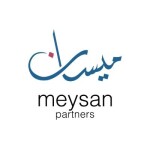Corporate governance has become increasingly crucial for companies, notably listed and regulated companies and represents the highest behavioural standards and thresholds that a board of directors and management of companies and businesses strive to attain.
Corporate governance also presents itself as a regulators’ compliance measurement tool that assists regulatory and supervisory authorities to measure a company’s compliance with the raft of corporate governance rules set forth in codes and circulars for the companies and public guidance and implementation.
Corporate governance is also viewed by stakeholders and investors as an indication on how companies and businesses are applying investors’ fundamental principles, like minorities’ protection and interests’ safeguard, transparency, proper and structured internal and external reporting and audit and decision-making processes ensuring efficient shareholders’ participation.
Through corporate governance, shareholders and investors can differentiate between companies that are ‘good’ and ‘poor’ performers in safeguarding the above pillars.
With the continuously developing rules of corporate governance, investors have also become interested in businesses with a strong and solid understanding and investment in corporate sustainability which is constituted by environmental, social and governance (ESG) components.
ESG stems from the role of companies to (i) mitigate the environmental impact of a company’s business operations and (ii) maintain the relationship of a company with its employees, customers, suppliers and the community. Governance codes are the cornerstone for ESG and regulators around the world are striving to foster the commitment of the private sector companies to sound corporate governance.
Kuwait has been following the global pace of promoting corporate sustainability by improving its corporate governance regulatory framework and issuing new regulations that promote ESG in accordance with international best practices, with the view of attracting foreign investment and promoting local economic growth.
Overview of Kuwait corporate governance framework
Corporate governance as a concept is introduced by the Kuwait Companies Law No. 1 of 2016 and its Executive Bylaws No. 287 of 2016 as amended (together, the Companies Law).
The Kuwait Capital Markets Authority (CMA) issued corporate governance guidelines for Kuwaiti listed companies and licensed companies that fall under the CMA supervision by virtue of Resolution No. 72 of 2015 on the issuance of the Executive Bylaws of Law No. 7 of 2010 and its amendments regarding the establishment of the CMA and regulating securities activities (CMA Regulation).
Module 15 of the CMA Regulation regulates the corporate governance framework which sets forth the principles of good corporate governance, Module 10 of the CMA Regulation regulates the disclosure and transparency obligations of companies, avoiding conflict of interest and insider trading and Module 11, which regulates dealing with securities, was amended at the beginning of 2022 to authorise issuance of green, social and sustainable bonds and sukuks and set out the compulsory reporting obligations to the bondholders and sukukholders (collectively, Corporate Governance Code).
Evidence suggests that corporate governance codes can influence environmental and social performance and improve corporate governance practices. A strong performance on ESG factors correlates positively with improved cost of capital and financial performance.
In order for a company to be classified as a ‘sustainable investment’, it ought to follow the good governance practices which are mostly set forth in the Corporate Governance Code. Therefore, the Corporate Governance Code plays a major role in ESG as it fosters positive impact on environmental and social performance of companies and promotes good corporate governance practices.
Corporate governance rules and principles
The Corporate Governance Code aims to help companies strengthen managerial efficiency, obtain funding at a lower cost, enhance the audit procedures which contributes to minimising risks, support the corporate social responsibility taking into consideration the three components of sustainable development which are economic growth, social progress, and environment protection, enhance fairness, transparency and fair treatment of all stakeholders and minimise conflict of interest.
The following main set of rules and principles of Module 15 of the CMA Regulation support attaining the foregoing objectives.
‘Comply or explain’ principle
The corporate governance rules set out in Module 15 of the CMA Regulation primarily operate based on the principle of ‘comply or explain’.
Companies shall disclose the extent of their compliance with these rules and identify in sufficient detail their deviation from the rules and the reasons of noncompliance. It is generally considered best practice for companies to comply rather than explaining noncompliance to the public.
The following rules fall under the principle of ‘comply or explain’:
Constructing a balanced board composition;
Establishing appropriate roles and responsibilities;
Recruiting highly qualified candidates for the board membership and the executive management;
Promoting the code of conduct and ethical standards;
Recognising the roles of stakeholders;
Encouraging and enhancing performance; and
Focusing on the importance of corporate social responsibility.
Module 15 of the CMA Regulation provides for other rules which are compulsory. The noncompliance with the following rules may expose the company to sanctions set forth in the CMA Regulation:
Ensuring that the board of directors includes independent members able to make decisions without pressure or obstacles;
Safeguarding the integrity of financial reporting;
Applying sound systems of risk management and internal audit;
Disclosure by the members of the board of directors to the board of any personal interest in any works or agreements concluded by the company;
Independent evaluation of any transaction between the company and any related party or any arrangement whereby the company and a related party enter into any project or asset financing where the value of the transaction or arrangement equals 10% or more of the total assets of the company;
Ensuring timely and high-quality disclosure and transparency; and
Respecting the rights of shareholders.
Forming an efficient board of directors
Building a capable board is of utmost importance to implementing a good corporate governance system. The presence of a proactive board that performs and allocates responsibilities among the specialised committees and ensures the implementation of sound corporate governance, is positively correlated with environmental and social performance. Module 15 of the CMA Regulation sets forth the rules and principles for building a good board, which include, inter alia, the following:
Formation of nomination and remuneration committees with at least one independent member to identify and nominate individuals qualified to become members of the board;
Maximum tenure of three years at board membership;
Considering variety of experiences and specialised skills of board members at board formation to enhance the efficiency of undertaking resolutions;
Prohibition to hold the office of board member in more than five Kuwaiti shareholding companies or the office of chairman in more than one Kuwaiti shareholding company;
Allocation of enough time to board members to execute their assigned roles and responsibilities;
Clear separation between the offices of board membership and executive management in a way that ensures full independence so that the board can perform its responsibilities effectively;
Formation by the board of specialised independent committees such as the audit committee, risk management committee, nominations committee and remuneration committee;
Responsibility of board members for safeguarding the integrity, soundness and impartiality of financial reports; and
Promoting ethical standards and responsible conduct among board members.
Disclosure and transparency
Disclosure and transparency is a fundamental principle of good corporate governance because it gives investors access to financial and operational aspects of the company and therefore leads to building trust and confidence in the company and the financial sector generally and attracts capital.
Given its importance, the CMA has dedicated a whole module in its executive bylaws to this principle. Module 10 of the CMA Regulation provides mainly for financial, governance and insider trading disclosures.
Module 15 on corporate governance sets forth corporate social obligations on listed companies and licensed companies, including corporate social responsibility related disclosures. Companies are required to disclose to investors in a timely and accurate manner financial and non-financial information related to the company, including its financial position, performance, ownership and corporate governance.
|
|
“Kuwait has been following the global pace of promoting corporate sustainability by improving its corporate governance regulatory framework and issuing new regulations that promote ESG in accordance with international best practices” |
|
|
The board of directors of listed and licensed companies shall put in place a mechanism to disclose goals of social responsibility assumed by the company for its employees. Additionally, work plans of social responsibilities provided by the company shall be disclosed in accordance with the periodical reports related to the company’s activities.
The recent amendment to Module 11, which regulates dealing with securities, placed it on the global ESG pace by introducing rules for listed companies aiming at enhancing corporate social responsibility and encouraging sustainable and green investments.
Companies may issue green, social and sustainable bonds and sukuks in accordance with the related instructions and guidance principles of the International Capital Market Association or the Climate Bonds Initiative standards or any other related international standards. The revenues of green, social and sustainable bonds shall be used for financing or re-financing green and social projects.
The newly introduced amendment to Module 11 provides for compulsory sustainability disclosures by the issuers of green, social or sustainable bonds or sukuks. Issuers of such bonds or sukuks must provide the bondholders’ association and sukukholders’ association, as the case may be, with the following reports that shall be made available on the issuer’s website:
An annual report describing the commitment of the issuer to the green, social or sustainable paper that shall determine the issuer’s obligations in all social and environmental matters;
An annual report prepared by the issuer’s auditor describing the use of revenues generated from bonds or sukuks in green or social projects and evaluating the issuer’s compliance with the green, social or sustainable paper and the related projects; and
A report prepared by an independent environmental and social specialist to study the framework paper submitted for the green, social or sustainable bonds or sukuks and assess the use of their revenues, its management, and the standards used for selecting green or social projects.
Emergence of ESG
As ESG matters are gaining prominence for investors and regulators, intergovernmental and non-governmental organisations, and other stakeholders globally are setting sustainability standards of disclosure. Governments and regulators all over the world are starting to establish ESG-regulatory frameworks and introducing ESG-related disclosures in their regulations.
Kuwait’s economy is predominantly based on oil exports which may seem at cross purposes with ESG principles. However, on January 30 2017, the Government of Kuwait issued the National Development Plan known as the ‘New Kuwait’ which promotes sustainable development across seven pillars with the aim of attracting investors through transforming Kuwait into a financial, cultural, and trade hub regionally and internationally by 2035 (the Kuwait Vision 2035). The seven pillars are aligned with the United Nations Sustainable Development Goals (SDGs).
At the end of 2017, Boursa Kuwait, in a commitment to enhance corporate sustainability in financial markets, became a member of the Sustainable Stock Exchanges (SSE) initiative let by the United Nations for the collaboration between exchanges and market participants, for the exchange of experience and knowledge. As part of its commitment to drive sustainability, Boursa Kuwait developed an ESG reporting guide for sustainability disclosure intended for all issuers listed on Boursa Kuwait in line with the Kuwait Vision 2035, the United Nations’ SDGs, the Global Reporting Initiative (GRI) framework (the GRI Standards represent global best practice for reporting publicly on a range of economic, environmental and social impacts. Sustainability reporting based on the Standards provides information about an organization’s positive or negative contributions to sustainable development), the recommendations of the Sustainable Stock Exchanges Initiative (SSE) and the World Federation of Exchanges (WFE). This guide proposes an initial set of twenty-six sustainability indicators related to economic, environmental, social and governance matters.
The guide is intended to encourage market participants to understand corporate sustainability, the various ESG-areas and the importance of ESG-reporting. While the disclosures contained in the guide are not compulsory, large corporates in Kuwait are voluntarily committing to sustainable business practices.
Corporate social responsibility
The Corporate Governance Code focuses on the importance of listed and licensed companies in committing to corporate social responsibility (CSR). Though this rule is applied on a ‘comply or explain’ basis, large corporates in Kuwait have been implementing it and developing policies that aims to achieve balance between the company’s goals and those of the society. The Corporate Governance Code requires from companies to put in place CSR policies aiming to:
Assist in providing job opportunities and create proper conditions;
Support and encourage national labour and enhance its efficiency and competitiveness;
Support small enterprises and open new prospects serving different categories of the society;
Design company activities consistent with economic and cultural status of the society;
Protect environment against pollution and other environmental damages;
Provide training programs to develop capacity of targeted groups in the society; and
Contribute to the limitation of damages of negative phenomena prevailing in the society and take voluntary charitable initiatives.
The board of directors of listed and licensed companies shall develop certain mechanisms and clear programmes to highlight the role of the company in the field of social work and develop indicators for achieving social responsibilities at the level of stakeholders or other society categories. The company’s CSR performance will be compared to other companies of similar activities.
The board shall also develop appropriate awareness and education programs to familiarise the company’s employees with the company’s CSR goals. The company must also develop awareness programs addressed to society to introduce its CRS objectives, which highlights the company’s role in improving living, social, and economic conditions.
Mitigating conflict of interest
The Companies’ Law and the CMA Regulation provide for several rules that aim at avoiding conflict of interest, which is a paramount principle for good governance and therefore of corporate sustainability.
In view of improving conflict of interest mitigation, the CMA most recently amended Module 15 by virtue of Resolution No. 108 of 2021 and introduced a requirement that at least 20% of the members of the board of directors must be independent, provided that the number of independent members does not exceed half of the board members. Conflict of interest mitigation rules laid down by the Companies’ Law and the CMA Regulation include, inter alia, the following:
The majority of board members must be non-executive members;
The board must include independent members who must have qualifications, experiences and technical skills which are consistent with the company’s activity. An independent member must not (i) hold 5% or more of the company’s shares, (ii) have a first degree relation with any board member or executive management member in the company or any other company of the same group or the relevant main parties, (iii) be a board member in any company of the same group, (iv) be an employee in the company or any company in the same group or of any of the stakeholders, and (v) be an employee for corporate entities who own controlling shares in the company;
The office of chairman and chief executive officer must be separated;
The board shall have a policy for conflict of interest, which includes clear examples of conflict of interest cases and the methods for resolving and dealing with the same;
Board members must inform the board of a personal interest in works or agreements concluded for the company and such reporting shall be listed in the minutes. The member of interest shall not be entitled to vote on the resolution issued in this regard;
The chairman must report to the general assembly the works and agreements in which a board member has a personal interest, and such reporting shall be enclosed with a special auditor report; and
The company must assign an independent expert, such as an asset valuator or investment advisor, to report to the general assembly or the board, as the case may be, on any transaction between the company and any related party or any arrangement whereby each party enters into any project or asset financing where the value of the transaction or arrangement equals 10% or more of the total assets of the company, provided that such report is submitted before the transaction is approved.
Shareholders’ rights and protections
The protection of shareholders is one of the key principles of good corporate governance under the Companies’ Law and the Corporate Governance Code.
The main rights and protections afforded to shareholders of listed companies and other shareholding companies are the right to fair treatment – all shares of the same class enjoying the same rights and benefits, the right to receive dividends and bonus shares, the right to obtain information on the operations and the financial position of the company including obtaining information in advance of any general meeting necessary to make informed decisions, pre-emption rights to subscribe into newly issued shares, the right to participate in the management of the company through participating in the board of directors of the company and attending the general assemblies and participating in its deliberations, and the right to receive a share of the company’s assets at liquidation prorated against its participation in the share-capital of the company.
Potential outcome
While disclosure of ESG issues under the current corporate governance framework in Kuwait is not fully compulsory to date and some disclosures are only based on the ‘comply or explain’ principle, this may well change in the near future given the global lobbying and pressure on regulators to give more weight and stricter measures to ESG-related issues.
The CMA and Boursa Kuwait are certainly set to significantly improve its ESG score with the ongoing initiatives by the CMA and Boursa Kuwait to develop the ESG specific directions and guidelines and encourage the ESG endorsement in all sectors.
The CMA and Boursa Kuwait will deploy efficient mechanisms to spread awareness by publishing ESG reports, ESG guidelines standards, shedding light on the ESG mission; disclosure of ESG metrics and reporting; and the publication of annual corporate governance reports. These mechanisms will certainly enhance the corporate governance practices and will take forward the agenda of corporate governance codes in ESG.
Click here to read all the chapters from IFLR ESG EMEA Report 2022

Tarek Yehya
Partner
Meysan Partners
T: +965 2205 1000
Tarek Yehya is a partner at Meysan Partners and the head of capital markets practice. He has vast experience in the Middle East region having advised local and international clients on some of the most complex matters under regional laws.
Tarek advises clients on all types of capital markets transactions including initial public offerings, equity and debt issuances, funds offering, as well as capital markets compliance matters, including corporate governance.
Tarek also focusses on projects, privatisation initiatives, public reforms of financial schemes, and regulatory processes.

Lama Abou Ali
Senior associate
Meysan Partners
T: +965 2205 1000
Lama Abou Ali is a senior associate at Meysan Partners and a member of the firm’s capital markets practice.
Lama’s expertise focuses on capital markets, M&A, and project development matters. She advised major local and international clients, including private and public institutions, and international organisations on infrastructure and energy projects, project finance, M&A, and technology.
Before joining Meysan, Lama worked as a consultant for a renowned English law firm and was the group legal counsel of a well-known bank in Lebanon for more than eight years.

Moayad AlSuwaidan
Associate
Meysan Partners
T: +965 2205 1000
Moayad AlSuwaidan is an associate with Meysan Partners’ corporate division, focusing primarily on regulatory and government affairs. He has worked on many projects and cases at Meysan Partners involving corporate law and litigation issues for multinational companies and clients.
Moayad completed his Juris Doctor from the Northeastern University School of Law and his BSc in Finance from Bentley University. He is a member of the New York Bar, since 2019, and the Kuwait Bar since 2018.




